< Back
Top 10 Sourcely Alternatives & Competitors in 2024
Declan Gessel
Sep 28, 2024
Writing a research paper is no easy task; it only gets more complicated when you have to use sources you don’t like. Sure, you can find any old source online, but what if it isn’t credible? What if it doesn’t support your argument? What if it’s too old or outdated, or even worse, what if it’s been debunked? The pressure gets even worse when a deadline looms. Students can almost hear the clock ticking as they search for credible, relevant sources to support their thesis and help them make their case.
Sourcely aims to help remedy that situation by using AI to help students find, evaluate, and cite credible sources for academic writing. But what happens when you try to access Sourcely and it’s down? Or maybe you just want to explore your options. In this guide, we’ll help you find sources for essay AI alternatives by introducing you to Sourcely and its features before revealing the top 10 Sourcely competitors in 2024.
Before we dive in, Jotbot’s source finder is a valuable tool to help you reach your objectives, such as getting acquainted with the top 10 Sourcely alternatives and competitors in 2024. With Jotbot, you can find credible sources and get organized, all within the same interface, so you can confidently tackle your research paper.
Table Of Contents
What to Look for When Choosing an AI Writing and Citation Tool
Write Smarter With Jotbot's Source Finder — Start Writing for Free Today
What is Sourcely?

Sourcely is an AI-powered citation and source management tool designed to assist students, researchers, and content creators in automating finding credible sources and managing citations. Its user-friendly interface and advanced features make it a popular choice for those engaged in academic writing.
Source ly's Key Features
Automated Citations
Sourcely generates citations in various academic styles, including APA, MLA, and Chicago, eliminating the need for manual formatting.
Efficient Source Discovery
Users can input their research topics or keywords, and Sourcely's AI scans the web to identify relevant academic sources quickly. This feature significantly reduces the time spent searching for literature.
Real-time Feedback
The tool provides suggestions to improve writing and source selection, enhancing the overall quality of research papers.
Organizational Tools
Sourcely allows users to tag sources, create folders, and sort references by criteria such as author or publication date, making it easier to manage research materials.
PDF Access
Many suggested sources come with free access to PDFs, enabling users to download full texts directly from the platform.
Advanced Filtering Options
Users can refine search results based on publication date, author, or keywords, ensuring they find the most relevant information.
Sourcely's combination of source discovery and essential organizational tools helps users efficiently build a focused research base. It is particularly beneficial for compiling extensive bibliographies or conducting thorough literature reviews.
Why Explore Sourcely Alternatives?
Sourcely supports only English, and the free plan has limited capabilities. Furthermore, this citation and source management tool was developed by a small business, which may raise concerns about reliability.
For example, Sourcely features filtering by year and citations only. It may need more technical support, and there could be a potential bias toward academic literature. Relevance quality may vary, and there is no information on data privacy. Finally, Sourcely needs a user community and an API for integration.
Related Reading
• How To Find Good Sources
• Using AI For Research
• Citing ChatGPT
• How To Find Academic Sources
• How To Cite AI In MLA
• AI For Research Paper Writing
• Essay Sources
• AI In Academic Writing
• Most Reliable Sources For Research
• How To Get ChatGPT To Cite Sources
What to Look for When Choosing an AI Writing and Citation Tool

1. Citation Accuracy and Support for Multiple Styles
When choosing a citation management tool, ensure it supports major citation styles like APA, MLA, Chicago, and Harvard. Each style has specific formatting rules that must be followed for accurate citations. To assess a tool's citation accuracy, test citation generation, cross-reference with official guides, and check user reviews.
2. Source Finding and Data Extraction
A robust citation management tool should enable users to search for and extract information from reliable sources. This includes academic databases, research articles, and books. When evaluating source-finding capabilities, look for advanced search functionality, source credibility, and data extraction features.
3. Ease of Use and Integration
An effective citation management tool should have an intuitive interface and seamless integration with popular writing platforms. Key aspects include user interface, integration with writing platforms, and data syncing across platforms. To evaluate ease of use, utilize trial versions and check for tutorials and support resources.
4. Additional AI Features
Consideration of additional AI-powered features can significantly enhance productivity. Useful functionalities include AI-powered note-taking, document summarization, outlining, and content generation. Review the tool’s feature lists and seek user experiences to assess these features.
5. Pricing and Accessibility
Pricing is a critical factor when choosing a citation management tool. Look for flexible pricing plans, free trials, or tiers, and evaluate pricing through a cost-benefit analysis and discounts for students or institutions.
Write more innovative, not harder, with Jotbot's AI writing assistant. Start finding sources for free with Jotbot's source finder today. Sign in with Google and get started in seconds.
Related Reading
• Best AI Tool For Research
• Reference Finder
• Best AI For Research
• How to Cite AI
• AI For Literature Review
• Websites Like Google Scholar
• AI That Cites Sources
• Best Academic Search Engines
• Academic Research Software
• How To Use Chat GPT For Research
• Best Research Tools For Students
How to Choose the Perfect Sourcely Alternative

Define Your Workflow Needs
Understanding your specific workflow is the first step in choosing an alternative to Sourcely, a source-finding tool for academic writing. For instance, are you looking for a tool to help with citation generation, or do you need a comprehensive solution that includes note-taking, summarization, and data extraction?
Defining what you need helps narrow down the options. Different tools excel in other areas. For instance, Jotbot offers AI-powered essay writing, citation generation, and video summarization, making it perfect for users who want an all-in-one tool. However, a more straightforward tool like EasyBib might suffice if your main goal is efficient citation management.
Consider Collaboration and Sharing Features
If you’re working in teams or academic groups, collaboration is critical. Look for tools that allow real-time collaboration, shared project spaces, or cloud-based storage to access documents across devices quickly. Tools like Zotero or Mendeley provide excellent collaboration options, allowing multiple users to annotate, share, and manage documents. This is especially useful for research teams or academic projects where multiple contributors must access the same sources and citations.
Evaluate Integration with Existing Tools
Make sure the alternative integrates smoothly with the tools you already use. For instance, does the tool work with Google Docs, Microsoft Word, or other writing platforms? Can you easily export or import documents? Tools with API integration allow for more flexibility, especially for businesses or developers. Integration ensures a smooth workflow.
Tools like Jotbot integrate directly with platforms like Google Docs and Microsoft Word, allowing you to add citations and references without switching between applications. This increases efficiency, particularly for users who rely on multiple platforms to complete their work.
Customization and Flexibility
Some users may need customization options to tailor the tool to specific needs. This includes choosing citation formats (APA, MLA, Chicago, etc.), setting up personalized databases, or integrating with other project management tools.
Customization ensures that the tool fits seamlessly into your personal or organizational workflow. For instance, EndNote offers advanced citation customization, allowing users to tailor their citations to meet specific academic or journal requirements.
Consider Pricing and Accessibility
Different tools have varying pricing structures. Some offer free versions with limited features, while others provide premium subscriptions for full access. Choosing a tool that fits your budget while providing the necessary features is essential.
While free tools like BibMe or Citation Machine offer essential citation generation, they may need advanced features like note-taking, document summarization, or collaboration. On the other hand, premium tools like Jotbot offer a broader range of features, making them worth the investment for users who need more comprehensive capabilities.
Top 10 Sourcely Alternatives in 2024

1. Jotbot: The All-in-One Research Assistant
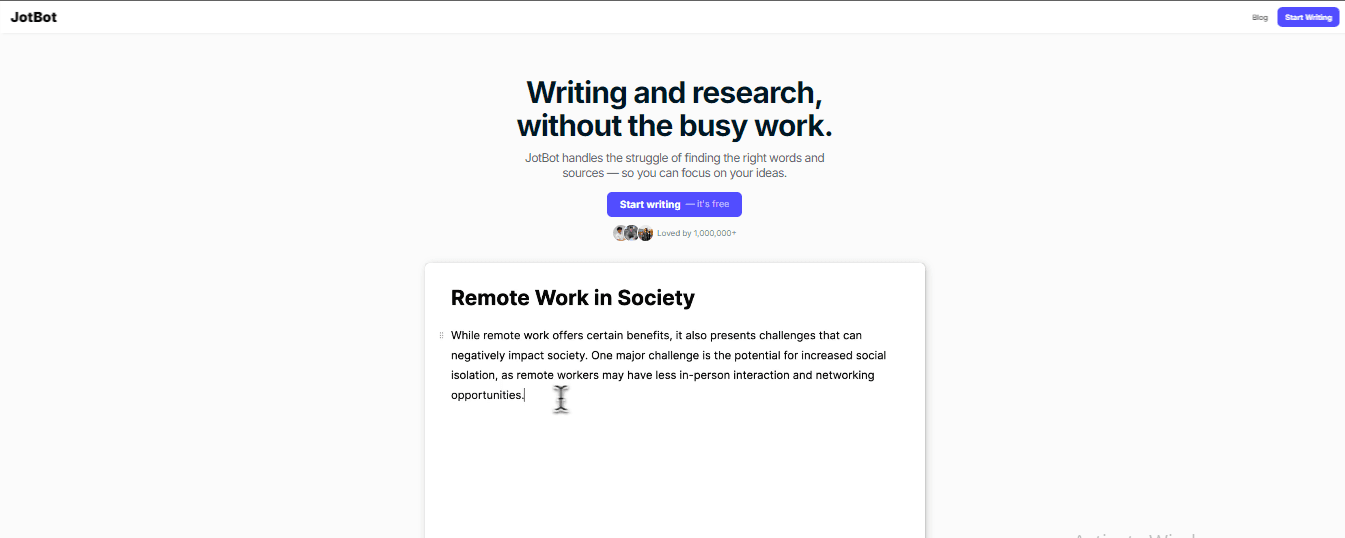
Jotbot is a powerful AI writing assistant that helps with various writing tasks, including academic research. Its research capabilities go far beyond essential citation management. For example, it can generate AI-assisted essay outlines and summarize academic videos and papers. Jotbot stands out due to its all-in-one capabilities, making it a versatile tool for students, researchers, and writers.
2. Zotero: The Student’s Citation Best Friend
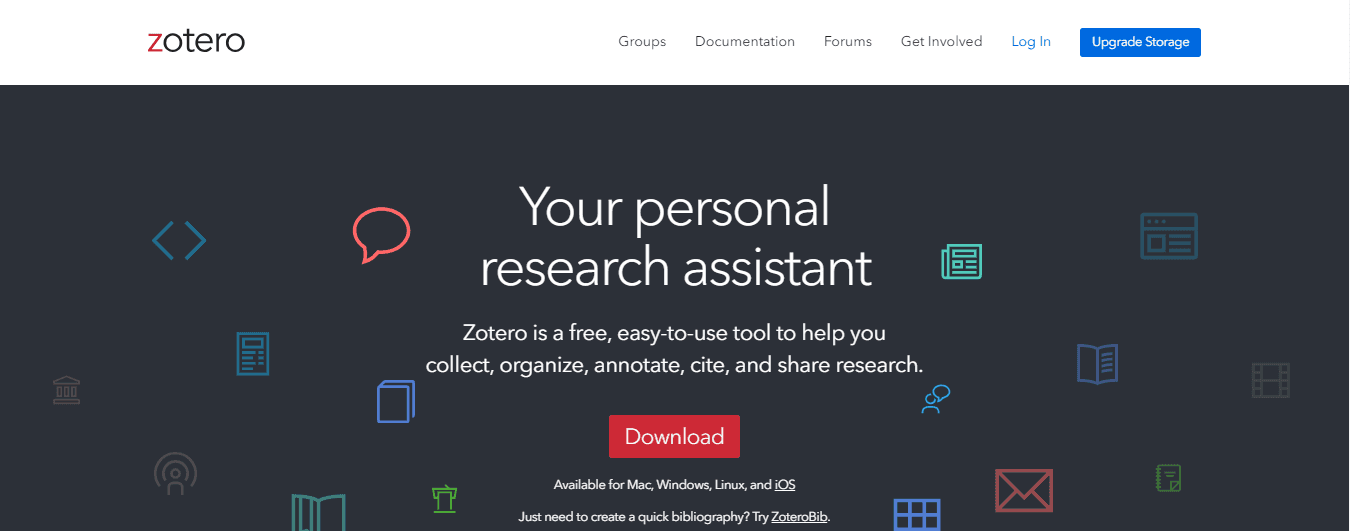
Zotero is a free, open-source tool for managing citations and research materials. It’s widely used in academia and offers a robust browser extension for quickly saving and organizing sources.
3. Mendeley: The Researcher’s Citation Powerhouse
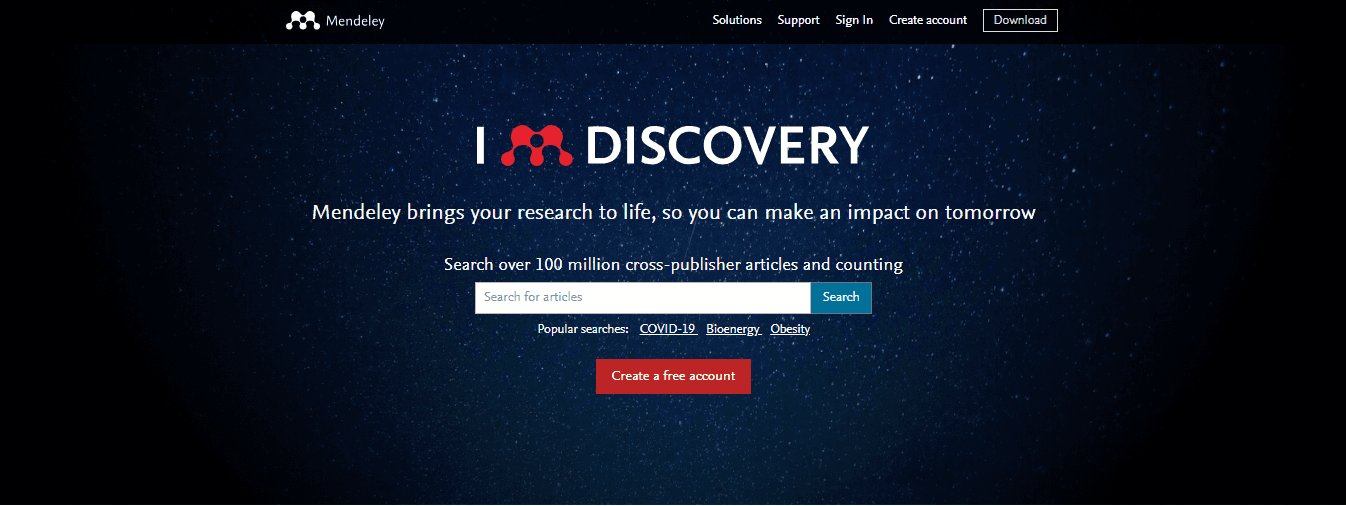
Mendeley is a reference management tool popular among researchers for organizing research papers and managing citations. It also offers social features for collaboration within academic networks.
4. EndNote: The Premium Citation Tool for Extensive Research Projects
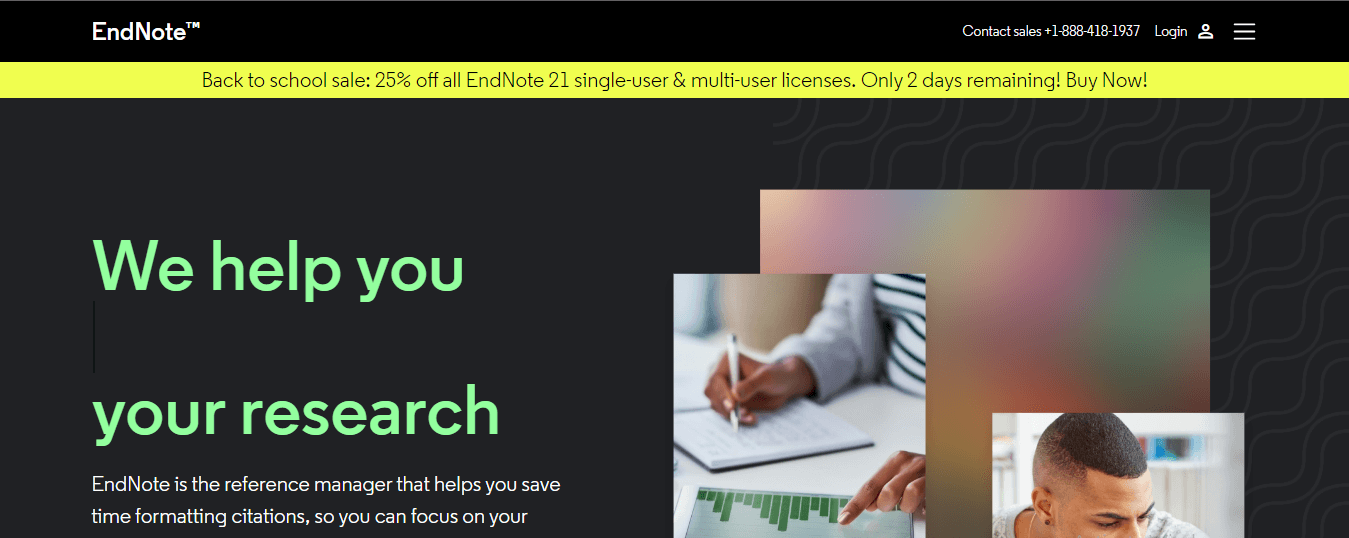
EndNote is a premium reference management tool designed for academic researchers needing extensive features to manage large citation libraries.
5. EasyBib: The Student-Friendly Citation Generator
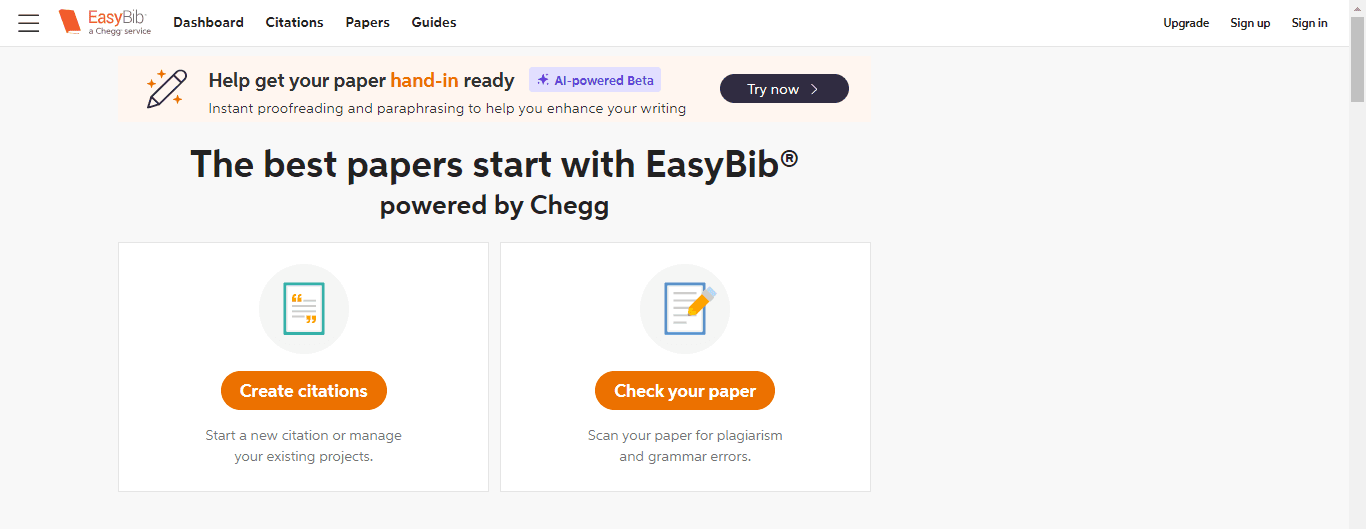
EasyBib is an easy-to-use online citation generator that supports multiple citation styles, making it an excellent option for students and writers.
6. RefWorks: The Cloud-Based Citation Management Tool
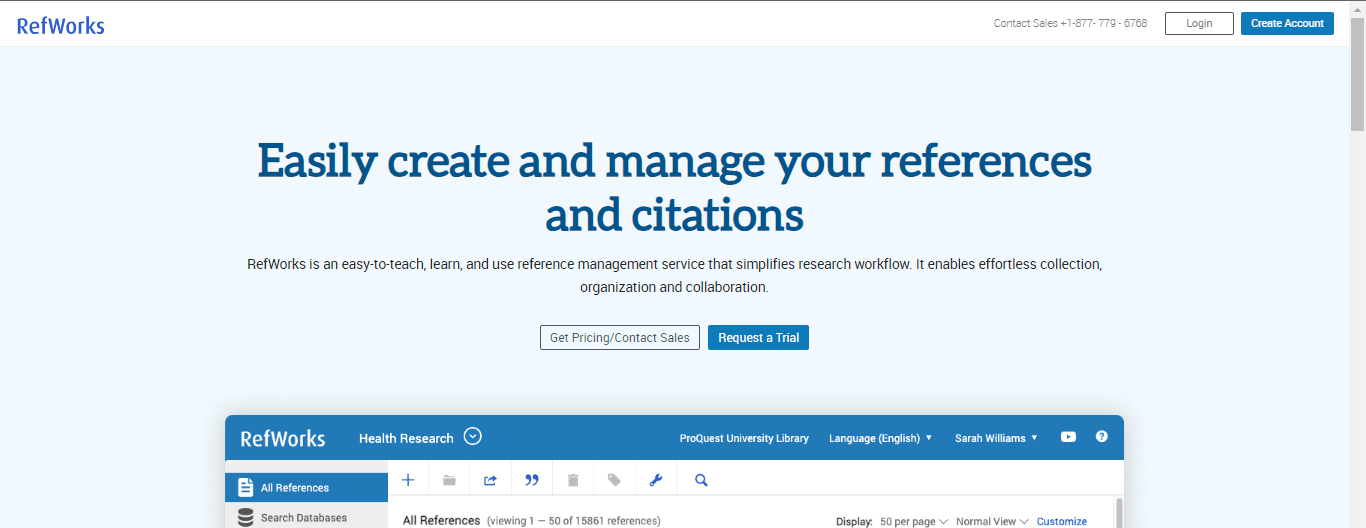
RefWorks is a cloud-based citation manager for academic researchers. It is a powerful tool for organizing research, generating citations, and collaborating on research projects.
7. Paperpile: The Google Docs-Friendly Reference Manager
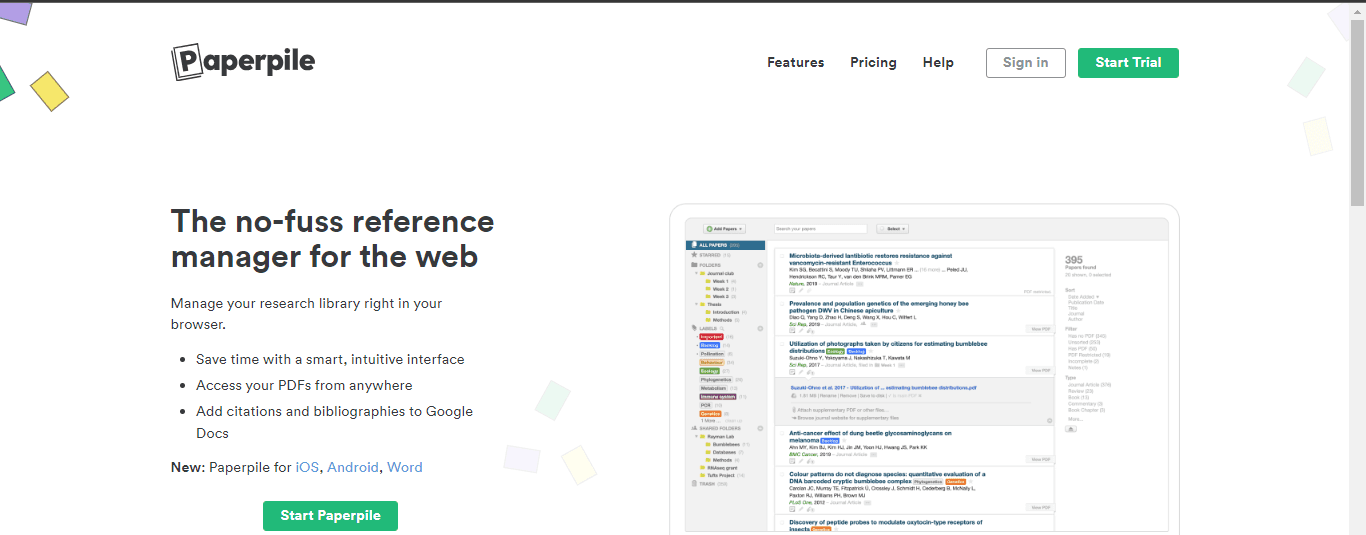
Paperpile is a web-based reference manager built with strong integration for Google Docs and Google Drive users.
8. Citation Machine: The Fast Online Citation Generator
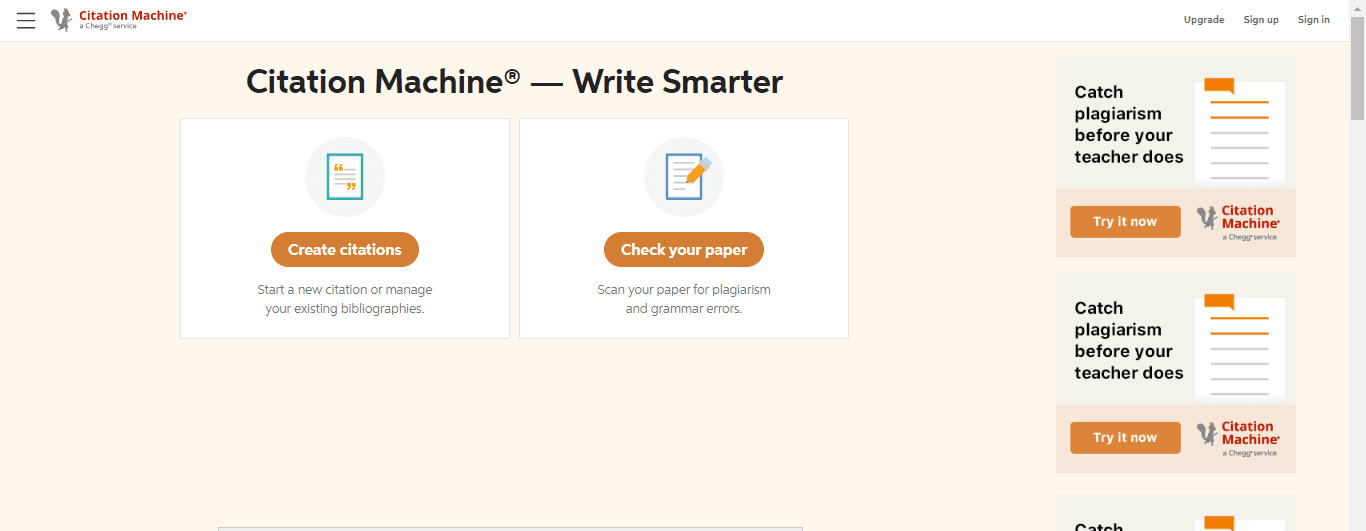
Citation Machine is a free online citation tool that helps students and writers quickly generate citations in various formats.
9. BibMe: The Simple Citation Generator
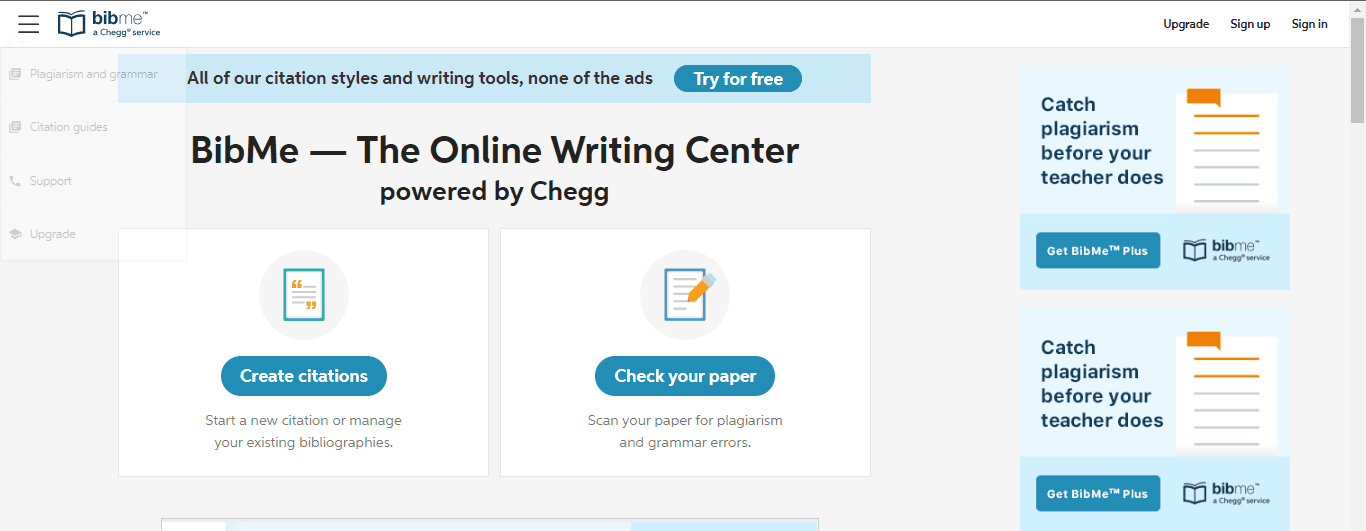
BibMe is another free online citation generator that allows users to create citations in multiple formats quickly and easily.
10. Cite This For Me: The Browser-Based Citation Tool
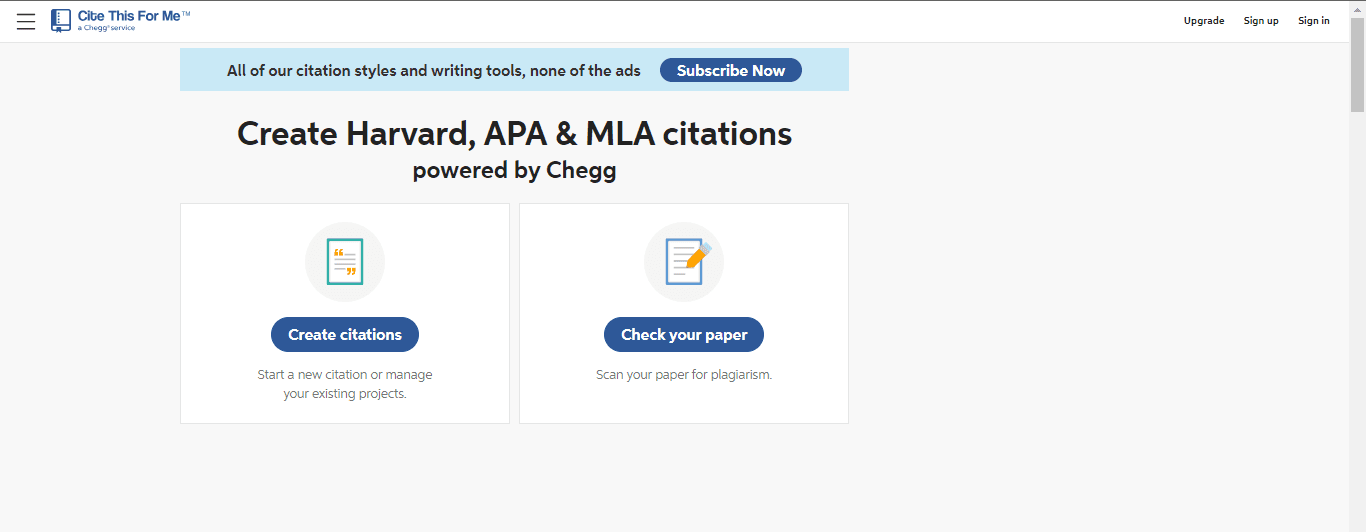
Cite This For Me offers a browser-based citation generator that allows users to create citations as they browse the web easily.
Who Can Benefit from AI Writing Tools and How to Use Them

Students: Automating Tedious Tasks to Improve Academic Performance
Students can greatly benefit from AI writing tools to manage citations, generate outlines, summarize reading materials, and even assist with writing essays. These tools help students streamline their academic work, reduce errors, and save time. AI writing tools like Jotbot can automatically generate citations in various formats (APA, MLA, Chicago) and integrate them into essays or research papers.
Students can upload textbooks, research papers, or lecture notes and have the tool summarize key points, helping them grasp complex topics quickly. Jotbot can generate structured outlines for essays based on the student’s prompts and even assist with writing portions of the essay to get started more quickly. By automating tedious tasks like citation generation and note summarization, students can focus more on the content of their work and less on formatting or manual research. It also improves accuracy by reducing human error in citations.
Writers: Streamlining Research and Planning for Faster, More Efficient Content Production
Writers, including content creators, bloggers, and copywriters, can use AI tools to generate ideas, structure articles, and research topics faster. The ability to quickly find sources and summarize content is a game changer for those producing written content regularly.
Writers can input a topic, and the tool will generate a list of credible sources or even summarize existing research, helping to jumpstart the writing process. Tools like Jotbot can help writers create comprehensive outlines for articles or blog posts, structuring content based on the writer’s prompts. AI tools can also assist with content generation, allowing writers to automate portions of their work, such as introductions or summaries, improving overall efficiency.
AI tools enable writers to produce high-quality content more efficiently by streamlining the research and planning phases. Additionally, by automating repetitive tasks, writers can focus on creative elements and output more content in less time.
Researchers: Improving Productivity and Organization of Research Materials
Researchers in academia or professional settings can use AI writing tools to manage citations, summarize complex studies, and extract critical data from lengthy documents. These tools help researchers quickly analyze information and organize their findings.
Researchers can easily generate citations for academic papers or articles in multiple styles, streamlining the research documentation process. Uploading lengthy research papers into AI tools allows researchers to receive summaries of critical findings and extract relevant data points for further analysis. AI tools can also help extract data or statistics from research documents, allowing researchers to efficiently organize their notes and findings.
AI tools save significant time for researchers working with large volumes of data or complex studies by quickly providing summaries, citations, and critical insights. These tools enhance productivity and improve the organization of research materials.
Start Writing for Free Today With Jotbot
Jotbot is your personal document assistant and source finder. Jotbot does AI note-taking, AI video summarizing, and AI citation/source finder; it writes AI outlines for essays and even writes entire essays with Jotbot’s AI essay writer.
Join 500,000+ writers, students, teams, and researchers worldwide to write more, write better, and write faster with Jotbot's AI writing assistant. Write more brilliantly, not harder, with Jotbot's AI writing assistant. Start finding sources for free with Jotbot's source finder today. Sign in with Google and get started in seconds.
How Jotbot Can Help You Save Time and Make Research Easy

Automate Citation Management with Jotbot AI
Jotbot’s AI-powered citation generator allows users to easily create accurate citations in multiple styles (APA, MLA, Chicago). With a simple input of a source or document, Jotbot generates a properly formatted citation and even integrates directly with writing platforms like Google Docs and Microsoft Word for easy insertion.
Searching for reliable information can be time-consuming. And when you finally find a source that works for your paper, there’s still the tedious task of creating a citation to manage. Jotbot’s citation generator streamlines this process so you can focus on your writing instead of getting bogged down by research.
Summarize Long Documents and Videos
Jotbot allows users to upload documents or input video links, after which it summarizes the key points. Whether it's a lengthy research paper, a textbook, or a webinar, Jotbot provides concise summaries that allow users to grasp the main ideas without reading or watching the entire content.
Reading long academic papers and books or watching videos for hours can be overwhelming. Jotbot’s summarization feature lets users quickly extract relevant information and focus on the most critical points for their research or writing needs, speeding up the workflow significantly.
Generate AI-Powered Essay Outlines
Jotbot’s essay outline feature allows users to input a prompt or topic, and the tool automatically generates a structured outline they can follow to write their paper. It organizes sections logically, including key arguments, evidence points, and conclusions, simplifying the writing process. Creating an essay outline from scratch can take time, especially for complex topics that require in-depth research. Using Jotbot to generate an outline, students and writers can jump-start their projects with a clear structure and direction, saving hours of planning and organization.
Instantly Find Credible Sources
Jotbot’s source-finding feature enables users to find credible sources, including journal articles, books, and reputable websites, in real-time. By inputting a topic or keyword, Jotbot searches its database for relevant, high-quality sources that users can integrate into their writing or research.
Searching for reliable sources manually can be time-consuming, often involving browsing multiple websites or databases. Jotbot speeds up this process by quickly delivering trustworthy sources, saving users hours of research, and ensuring they use credible information in their work.
Write Entire Essays with Jotbot’s AI Essay Writer
Jotbot’s AI essay writing feature allows users to provide a prompt, and the tool can generate a complete essay draft. The user can then review and edit this draft to suit their requirements, offering a foundation that can be expanded upon.
Writing an essay from scratch can be lengthy, particularly for those struggling with writer's block. Jotbot’s essay writing tool speeds up the process by providing a draft that users can build upon. This reduces the time spent on initial writing and helps users focus more on refining and improving their content.
Write more innovative, not harder, with Jotbot's AI writing assistant. Start finding sources for free with Jotbot's source finder today. Sign in with Google and get started in seconds.
Write Smarter With Jotbot's Source Finder — Start Writing for Free Today
When the time comes to write an essay, there are many moving parts to consider. What is my thesis? How can I best support my argument? What sources can I use? Where can I find those sources? How do I cite them properly? Jotbot can help you tackle the source-finding part of your next writing assignment.
Jotbot's source finder uses artificial intelligence to help you find reliable sources for your essay quickly and easily. When you enter a prompt or a topic, Jotbot's source finder will scour the Internet for relevant materials to help you write your paper. In no time, you can have a list of credible sources at your fingertips to help you with your next writing project.
Jotbot's Source Finder Can Help You Write Smarter, Not Harder
You don't have to go through it alone when writing your following essay. A tool like Jotbot can make your life easier. If you need help finding sources for your next writing assignment, try using Jotbot's source finder to help you write more innovative, not harder.
Related Reading
• AI Research Tools
• Elicit AI
• Scisummary
• Scholarcy AI
• Consensus AI Tool
• Mendeley Alternatives
• Cite This For Me Alternative
• Scholarly Sources Examples
• Academic Sources Examples
• How to Find Scholarly Sources
• List of Scholarly Sources
• Examples of Peer Reviewed Sources
• How to Cite a Book
• How to Cite an Article
• How to Cite
• How to Cite a PDF
• How to Cite Multiple Authors MLA
• How to Cite a Website in Text
• How to Cite a Lecture
• How to Cite ChatGPT
Write more, better, faster.
Your personal AI document assistant












